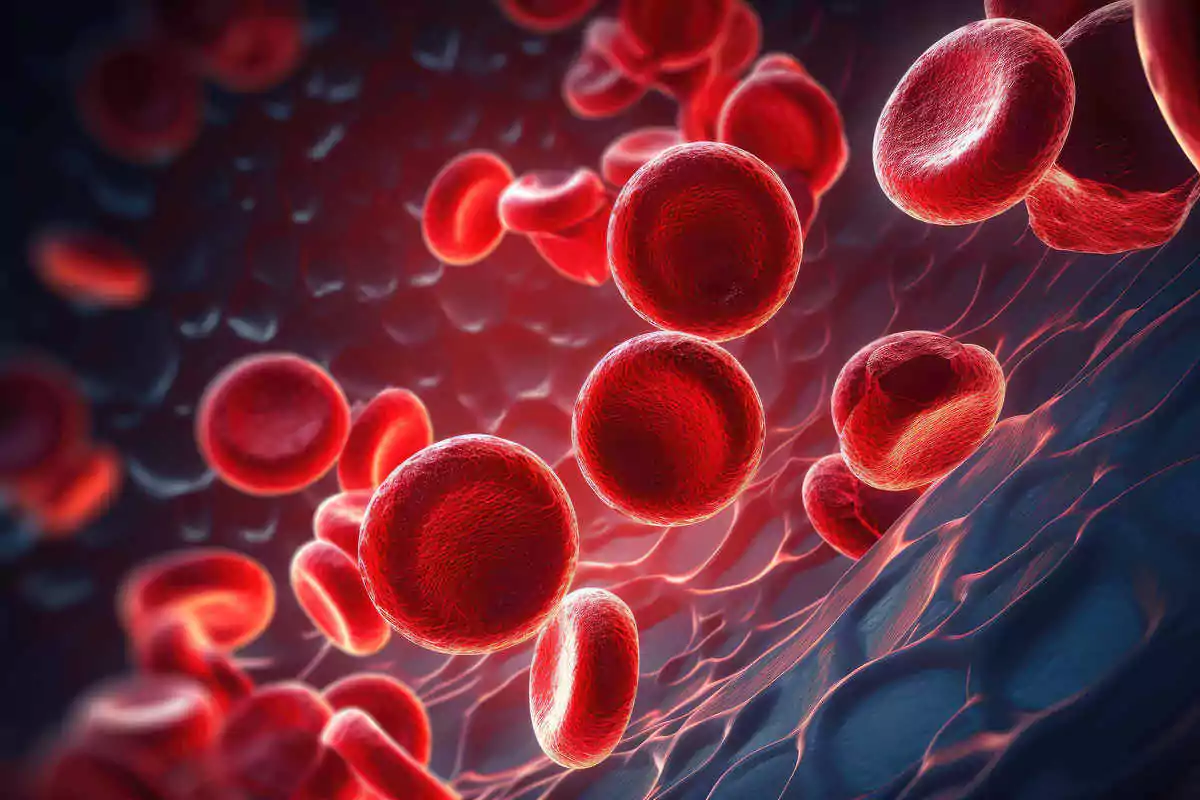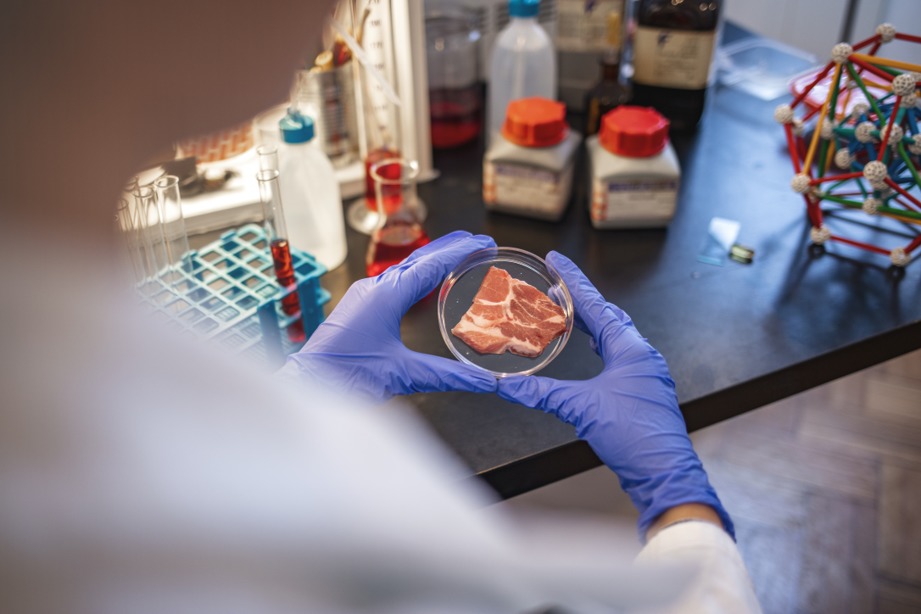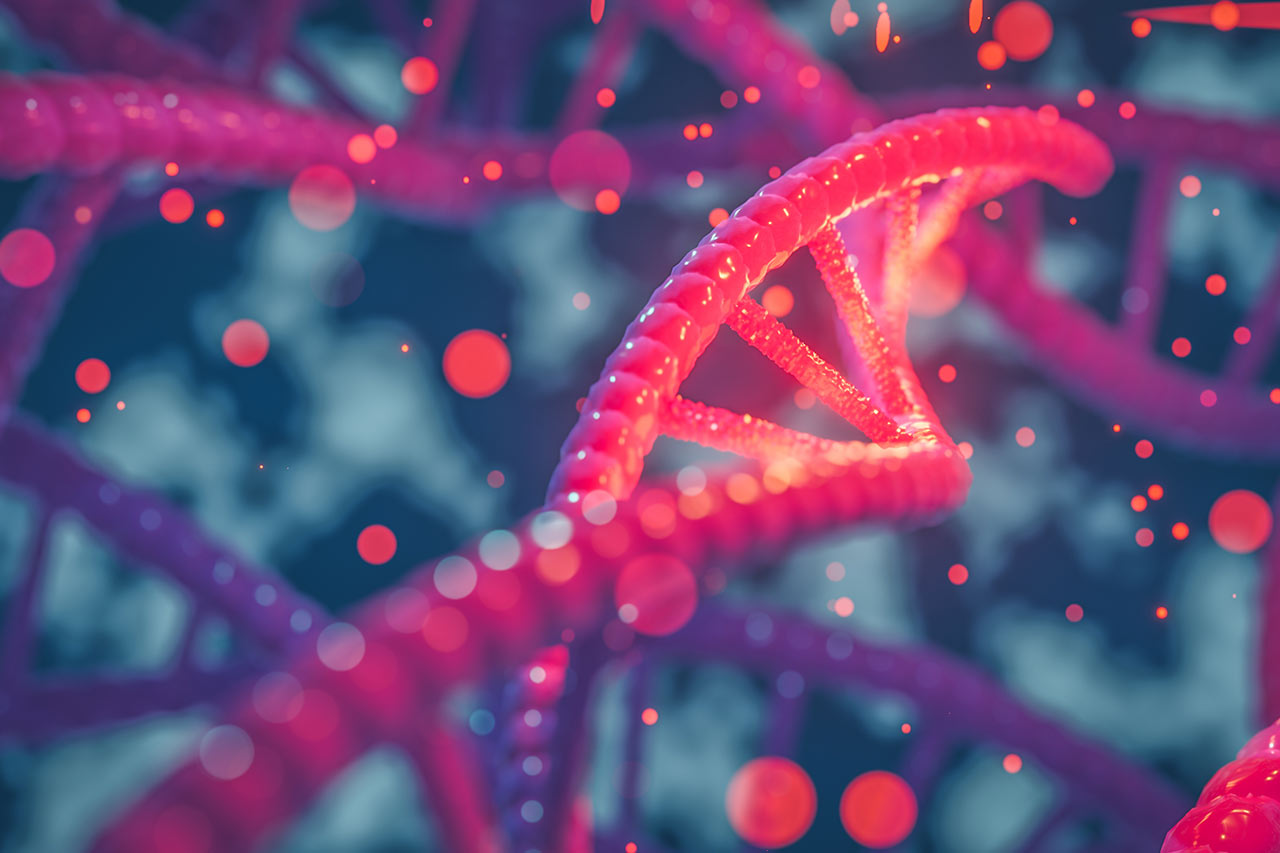
Synthetic biology

Develop your research capabilities and address unmet needs
Our specialized team helps manufacturers explore the opportunities offered by synthetic biology in various fields of research and application, in order to create new biological functions, new organisms or new materials with novel properties.
They trust us





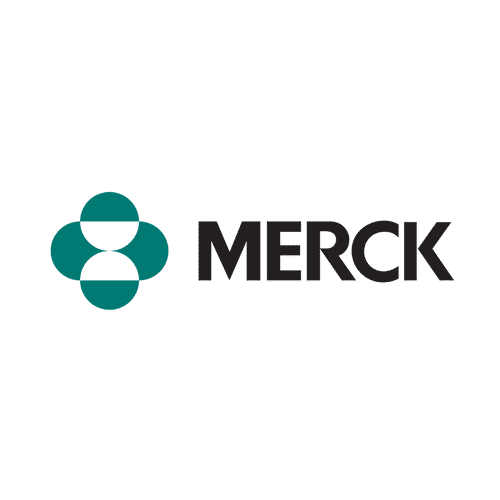

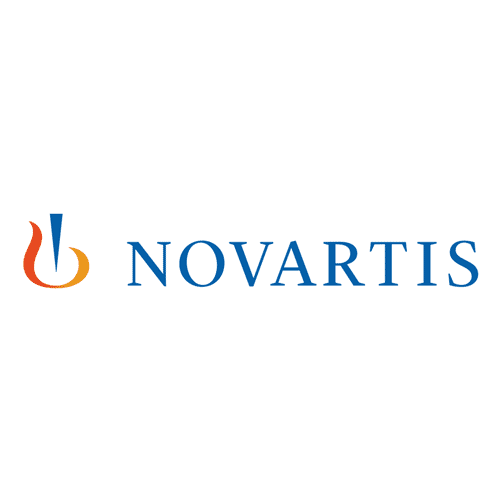

The challenges related to synthetic biology
Synthetic biology and genome editing are a strongly growing field with many potential applications. While already in use to address some challenges in medicine, agriculture, manufacturing, and environmental science, the list of opportunities to address is not exhausted yet. Still, researchers and companies face several technical, ethical as well as business-related challenges:
While significant progress has been made in evolving the field of synthetic biology, biological systems are inherently complex, with multiple interconnected components that work together in intricate ways. Many of these components are still not fully understood, and their interactions are often difficult to predict. This complexity makes it challenging to design and build biological systems that are predictable and reliable. As our understanding of biological systems improves and new technologies emerge, we may be able to overcome these challenges and build more complex biological systems with synthetic biology and genome editing in the future.
What are the newest research developments in synthetic biology? What are the trends with regards to synthesizing complex biological systems?
The use of synthetic biology and genome editing raises safety and ethical concerns, such as the possibility of creating organisms that could be harmful to humans or the environment and could have unintended consequences, such as the spread of engineered traits to wild populations. Additionally, potential misuse of technologies, animal welfare related to research and experimentation or the ethical implications of manipulation and creation of new forms of life have been named as concerns related to synthetic biology.
Will concerns related to synthetic biology hinder further progress of synthetic biology? What are the current and proven safeguards?
A great deal of uncertainty surrounds the intellectual property landscape for synthetic biology, which is a highly interdisciplinary field that requires collaboration across different domains of expertise. As a result, companies and researchers operating in this field must navigate a complex regulatory landscape, that can vary depending on the application and location, and must carefully navigate patent law to protect their innovations while avoiding infringement on others’ intellectual property.
How will products of synthetic biology be regulated? Who owns and controls the products of synthetic biology?
Synthetic biology and DNA editing could have significant impacts on society and the economy. For example, the development of synthetic organisms that can produce renewable energy that could disrupt existing energy markets or the development of new therapeutics or cures for diseases. There is a concern that the benefits of synthetic biology may be unevenly distributed, with some groups benefiting more than others.
Who will have access to newly developed technologies and products? How will homogenous access to new technologies and products be ensured?
The development of new synthetic biology technologies and applications can be expensive and time consuming and many applications are still in the research phase. Scaling up the production can be challenging. Companies must find ways to optimize their processes to meet the demands of commercial-scale production.
How will the costs to develop new technologies evolve in the coming years? What could process optimization look like?
How we support you in your projects related to synthetic biology
Drawing on 30 years of experience working with clients in and around the healthcare and industrial sectors, our team is well prepared to help healthcare, agrifood and environment industrials players to better understand synthetic biology and its developmental potential, boundaries, regulatory restrictions, and necessities to implement synthetic biology strategies.
We mainly work on this topic with R&D departments of companies, as well as marketing or partnership functions. The wide variety of our clients from around the world, and the types of projects we cover give us a global and in-depth understanding in the ever-growing field of synthetic biology and DNA editing.
Our projects cover technology landscaping, understanding future impact on healthcare and industrial businesses, the development of R&D strategy and business plans, research on the market or regulatory framework, search for partners, and many more.
Examples of recent projects carried out for our clients in synthetic biology
Development of a business model and business plan for a synthetic biology R&D platform
We supported one of our clients in refining and finalizing their business model and business plan on a biotechnology R&D service infrastructure providing expertise in several synthetic biology technologies.
In a first step we challenged our client’s scenarios about competitive positioning and application markets to focus on. We then identified potential customers and funding options and defined the potential revenue of the platform, nourished by field insights.
In the end, a first version of the business model and business plan was co-constructed and further refined to address both academic and industrial actors.
Receptivity study of a synthetic biology technology for microorganism development in the healthcare, cosmetics, food, and feed sectors
We supported our client, a company in the biotechnology industry specialized in gene engineering on micro-organisms, in better understanding the potential for microorganism development in the healthcare, cosmetics, food, and feed sectors.
Our team help our client in defining and prioritizing its market by performing interviews with key opinion leaders and representatives of industrial players located in the sectors of interest.
The key expected features were derived in a consistent value proposition, and subsequently a refined business model on the sector with the highest interest was developed.
Analysis of biotechnological evolutions and synthetic biology perspectives in Asia
We helped our client, a major player in cosmetics industry, prepare for a scientific advisory board with country experts to decide on the company’s future directions in white biotechnology.
We provided our client with a transversal vision on the sector of biotechnology, white biotechnology, and the focus area of ingredients interesting for our client, for them to better understand the current ecosystem. Synthetic biology and DNA editing were an important part of the ecosystem in scope, and we helped our client understand the current landscape within synthetic biology and other segments through our work.
Our joint preparation for the scientific advisory board prepared the scene for a complex and interesting discussion on white as well as synthetic biotechnology.
Assessment of the technical readiness of synthetic biology to produce recombinant proteins in microalgae
Alcimed worked with a major animal health company to assess the business and technical landscape for using synthetic biology to produce recombinant proteins in microalgae with applications in animal health.
We performed a global search for companies who are genetically modifying microalgae to produce recombinant proteins. Through interviews with these companies as well as independent microalgae researchers we developed an understanding of the current state of the technology and market.
This research helped our client have a clear view on the technical readiness of synthetic biology applied to microalgae, and to rank the potential applications to animal health, in terms of proteins to produce and species to target, given their respective time-to-market.
Landscaping in vivo incorporation of non-canonical amino acids in irecombinant proteins for a global pharmaceutical player
Alcimed conducted a global search for companies, technologies, patents, and research groups who have advanced the ability to incorporate non-canonical amino acids into expressed recombinant proteins for a global pharmaceutical player.
We used a combination of interviews, literature research, and database mining to create an overview of companies with the ability to express recombinant proteins that contain non-canonical amino acids.
This research aided our client by revealing early stage technologies that are ripe for investment, identifying potential partners for the bioproduction of proteins with non-canonical amino acids, and by discovering new companies in this space previously unknown to our client.
Understanding of white biotechnology in Europe for an industrial launching an innovation hub on sustainable materials
White biotechnology uses microorganisms, often engineered via synthetic biology, to industrially produce chemicals and materials. We accompanied an industrial launching an innovation hub on sustainable materials understand the number and economic sectors of white biotechnology start-ups in Europe.
We also investigated the demand for white biotechnology products as well as trends in the technological applications for white biotechnology in Europe.
Through our results, we helped our client understand that the bioproduction infrastructure necessary for companies to develop white biotechnology, even at the pilot and demonstration stage, is still insufficient in Europe, and what his hub could provide to fill some of the gaps.
You have a project?
To go further
Healthcare
Tissue engineering, a revolution for many applications
Technical advances in tissue engineering Tissue engineering is based on two elements: the matrix, the structure on which the tissue architecture must be organized, and the stem cells, which can be ...
Agrifood
Cellular agriculture: a climate solution?
The environmental aspect is regularly put forward as one of the major benefits of cellular agriculture. But some voices are raised to shade this climatic benefit. Between breeding and synthetic meat, ...
Healthcare
CRISPR designer babies: a genetic exploit shaking the scientific community
Why are Lulu and Nana, first “genetically edited babies”, so important? They are said to have undergone gene editing using the famous CRISPR technology. Alcimed looks back on some details of this ...
Founded in 1993, Alcimed is an innovation and new business consulting firm, specializing in innovation driven sectors: life sciences (healthcare, biotech, agrifood), energy, environment, mobility, chemicals, materials, cosmetics, aeronautics, space and defence.
Our purpose? Helping both private and public decision-makers explore and develop their uncharted territories: new technologies, new offers, new geographies, possible futures, and new ways to innovate.
Located across eight offices around the world (France, Europe, Singapore and the United States), our team is made up of 220 highly-qualified, multicultural and passionate explorers, with a blended science/technology and business culture.
Our dream? To build a team of 1,000 explorers, to design tomorrow’s world hand in hand with our clients.
Synthetic biology is a multidisciplinary field of science that aims to design and engineer new biological systems or modify existing ones to perform specific functions. It is based on the combination of molecular biology, genetics, engineering, and computer science to create artificial biological systems using genetic parts and modules.
The field of synthetic biology aims to enable scientists and researchers to create new biological functions, organisms, or materials with novel properties that cannot be found in nature. This is achieved by designing and assembling DNA sequences, genes, and proteins in a modular fashion, creating biological circuits and networks that can perform specific tasks. Synthetic biology and genome editing appear very similar as both involve changing an organism’s genetic code. The fundamental difference between both is the method used to introduce the changes:
- In synthetic biology typically long stretches of DNA are stitched together and inserted into an organism’s genome. These DNA pieces can either be sourced from another organism or be entirely novel, i.e. obtained through DNA synthesis.
- Compared to this, in genome editing tools are applied to introduce small changes to the organism’s genome by deletion or addition of small stretches of DNA.
Synthetic biology and genome editing have the potential to revolutionize various fields, including medicine, biotechnology, agriculture, manufacturing, and environmental science. Potential use cases include creation of novel biological systems (complex networks which connect several biologically relevant entities), design of new organisms, development of new therapies, improvement of agriculture, creation of new materials such as biodegradable plastic, or detection and remediation of environmental pollution. Overall, the potential applications of synthetic biology are vast and diverse, and the field is rapidly advancing with new discoveries and breakthroughs.
- Insulin production: one of the earliest and most successful applications of synthetic biology was the production of human insulin by bacteria with modified genes. This technology is used today to produce insulin for the treatment of diabetes.
- Anti-malaria drug production: researchers have used synthetic biology to engineer bacteria to produce Artemisinin, an important anti-malaria drug. This has made the drug more affordable and accessible to people in developing countries.
- New cancer therapies: synthetic biology is being used to develop new cancer therapies by engineering cells to detect and destroy cancer cells. One example is CAR-T cell therapy, which involves modifying a patient’s T cells to recognize and kill cancer cells.
- Biodegradable plastics: scientists have engineered bacteria to produce biodegradable plastics using renewable resources like sugar cane and corn. These plastics are more environmentally friendly than traditional plastics, which are made from non-renewable resources like oil.
- Bioremediation: scientists have engineered bacteria to clean up oil spills or degrade polychlorinated biphenyls (PCBs) which are toxic industrial chemicals that persist in the environment for decades.
- Golden Rice: synthetic biology was used to modify the genes of rice to produce β-carotene by adding two genes, a plant phytoene synthase, and a bacterial phytoene desaturase, enabling the β-carotene accumulation in the rice grain. Golden Rice was developed to prevent vitamin deficiency in global regions where rice is a food staple.
The global synthetic biology market was estimated to be worth on average between $9-13 billion USD in 2021 – 2022, the years with the best data available. This value is estimated to grow at a CAGR of 19 – 28% by the end of the decade.
